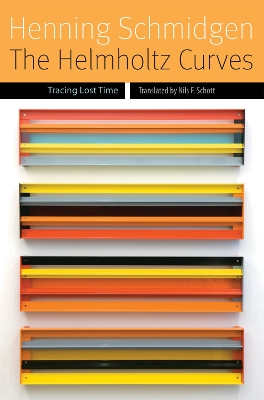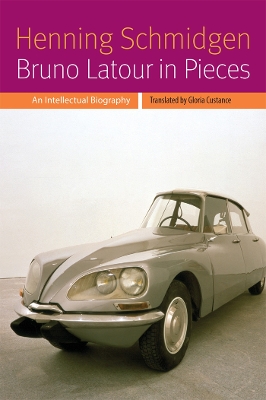Forms of Living
2 total works
This book reconstructs the emergence of the phenomenon of “lost time” by engaging with two of the most significant time experts of the nineteenth century: the German physiologist Hermann von Helmholtz and the French writer Marcel Proust.
Its starting point is the archival discovery of curve images that Helmholtz produced in the context of pathbreaking experiments on the temporality of the nervous system in 1851. With a “frog drawing machine,” Helmholtz established the temporal gap between stimulus and response that has remained a core issue in debates between neuroscientists and philosophers.
When naming the recorded phenomena, Helmholtz introduced the term temps perdu, or lost time. Proust had excellent contacts with the biomedical world of late-nineteenth-century Paris, and he was familiar with this term and physiological tracing technologies behind it. Drawing on the machine philosophy of Deleuze, Schmidgen highlights the resemblance between the machinic assemblages and rhizomatic networks within which Helmholtz and Proust pursued their respective projects.
Bruno Latour stirs things up. Latour began as a lover of science and technology, co-founder of actor-network theory, and philosopher of a modernity that had “never been modern.” In the meantime he is regarded not just as one of the most intelligent—and also popular—exponents of science studies but also as a major innovator of the social sciences, an exemplary wanderer who walks the line between the sciences and the humanities.
This book provides the first comprehensive overview of the Latourian oeuvre, from his early anthropological studies in Abidjan (Ivory Coast), to influential books like Laboratory Life and Science in Action, and his most recent reflections on an empirical metaphysics of “modes of existence.” In the course of this enquiry it becomes clear that the basic problem to which Latour’s work responds is that of social tradition, the transmission of experience and knowledge. What this empirical philosopher constantly grapples with is the complex relationship of knowledge, time, and culture.

